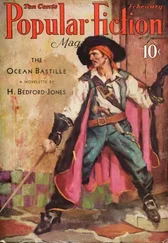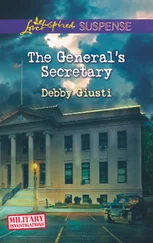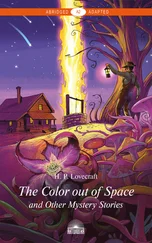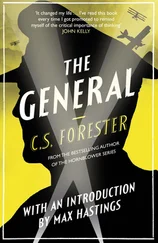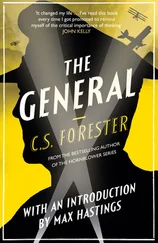If only because the Protestant ministers were visibly dubious, Father O’Malley agreed. “By all means. Oh, yes.”
“Just how the hell do you know?” demanded General Drummond, loosening his sidearm. “That thing has the strength of a bulldozer.”
Not to be outdone by a combination of Catholic and Jew, Whitcomb stepped forward bravely and faced Drummond and said, “That ‘thing,’ as you call it, sir, is one of the Almighty’s blessed angels, and you would do better to see to your immortal soul than to your sidearm.”
To which Drummond yelled, “Just who the hell do you think you are talking to, mister—just—”
At that moment the angel sat up, and the men around him leaped away to widen the circle. Several drew their sidearms; others whispered whatever prayers they could remember. The angel, whose eyes were as blue as the skies over Viet Nam when the monsoon is gone and the sun shines through the washed air, paid almost no attention to them at first. He opened one wing and then the other, and his great wings almost filled the hangar. He flexed one arm and then the other, and then he stood up.
On his feet, he glanced around him, his blue eyes moving steadily from one to another, and when he did not find what he sought, he walked to the great sliding doors of Hangar F and spread them open with a single motion. To the snapping of steel regulators and the grinding of stripped gears, the doors parted—revealing to the crowd outside, newsmen, officers, soldiers, and civilians, the mighty, twenty-foot-high, shining form of the angel.
No one moved. The sight of the angel, bent forward slightly, his splendid wings half spread, not for flight but to balance him, held them hypnotically fixed, and the angel himself moved his eyes from face to face, finding finally what he sought—none other than Old Hell and Hardtack Mackenzie.
As in those Western films where the moment of “truth,” as they call it, is at hand, where sheriff and badman stand face to face, their hands twitching over their guns—as the crowd melts away from the two marked men in those films, so did the crowd melt away from around Mackenzie until he stood alone—as alone as any man on earth.
The angel took a long, hard look at Mackenzie, and then the angel sighed and shook his head. The crowd parted for him as he walked past Mackenzie and down the field—where, squarely in the middle of Runway Number 1, he spread his mighty wings and took off, the way an eagle leaps from his perch into the sky, or—as some reporters put it—as a dove flies gently.
Only the mouse watched the flying saucer descend to earth. The mouse crouched apprehensively in a mole’s hole, its tiny nose twitching, its every nerve quivering in fear and attention as the beautiful golden thing made a landing.
The flying saucer—or circular spaceship, shaped roughly like a flattened, wide-brimmed hat—slid past the roof of the split-level suburban house, swam across the back yard, and then settled into a tangle of ramblers, nestling down among the branches and leaves so that it was covered entirely. And since the flying saucer was only about thirty inches in diameter and no more than seven inches in height, the camouflage was accomplished rather easily.
It was just past three o’clock in the morning. The inhabitants of this house and of all the other houses in this particular suburban development slept or tossed in their beds and struggled with insomnia. The passage of the flying saucer was soundless and without odor, so no dog barked; only the mouse watched—and he watched without comprehension, even as he always watched, even as his existence was—without comprehension.
What had just happened became vague and meaningless in the memory of the mouse—for he hardly had a memory at all. It might never have happened. Time went by, seconds, minutes, almost an hour, and then a light appeared in the tangle of briars and leaves where the saucer lay. The mouse fixed on the light, and then he saw two men appear, stepping out of the light, which was an opening into the saucer, and onto the ground.
Or at least they appeared to be vaguely like creatures the mouse had seen that actually were men—except that they were only three inches tall and enclosed in spacesuits. If the mouse could have distinguished between the suit and what it contained and if the mouse’s vision had been selective, he might have seen that under the transparent covering the men from the saucer differed only in size from the men on earth—at least in general appearance. Yet in other ways they differed a great deal. They did not speak vocally, nor did their suits contain any sort of radio equipment; they were telepaths, and after they had stood in silence for about five minutes they exchanged thoughts.
“The thing to keep in mind,” said the first man, “is that while our weight is so much less here than at home, we are still very, very heavy. And this ground is not very dense.”
“No, it isn’t, is it? Are they all asleep?”
The first reached out. His mind became an electronic network that touched the minds of every living creature within a mile or so.
“Almost all of the people are asleep. Most of the animals appear to be nocturnal.”
“Curious.”
“No—not really. Most of the animals are undomesticated—small, wild creatures. Great fear—hunger and fear.”
“Poor things.”
“Yes—poor things, yet they manage to survive. That’s quite a feat, under the noses of the people. Interesting people. Probe a bit.”
The second man reached out with his mind and probed. His reaction might be translated as “Ugh!”
“Yes—yes, indeed. They think some horrible thoughts, don’t they? I’m afraid I prefer the animals. There’s one right up ahead of us. Wide awake and with nothing else in that tiny brain of his but fear. In fact, fear and hunger seem to add up to his total mental baggage. Not hate, no aggression.”
“He’s also quite small as things go on this planet,” the second spaceman observed. “No larger than we are. You know, he might just do for us.”
“He might,” the first agreed.
With that, the two tiny men approached the mouse, who still crouched defensively in the mole hole, only the tip of its whiskered nose showing. The two men moved very slowly and carefully, choosing their steps with great deliberation. One of them suddenly sank almost to his knees in a little bit of earth, and after that they attempted to find footing on stones, pebbles, bits of wood. Evidently their great weight made the hard, dry earth too soft for safety. Meanwhile the mouse watched them, and when their direction became evident, the mouse attempted the convulsive action of escape.
But his muscles would not respond, and as panic seared his small brain, the first spaceman reached into the mouse’s mind, soothing him, finding the fear center and blocking it off with his own thoughts and then electronically shifting the mouse’s neuron paths to the pleasure centers of the tiny animal’s brain. All this the spacemen did effortlessly and almost instantaneously, and the mouse relaxed, made squeaks of joy, and gave up any attempt to escape. The second spaceman then broke the dirt away from the tunnel mouth, lifted the mouse with ease, holding him in his arms, and carried him back to the saucer. And the mouse lay there, relaxed and cooing with delight.
Two others, both women, were waiting in the saucer as the men came through the air lock, carrying the mouse. The women—evidently in tune with the men’s thoughts—did not have to be told what had happened. They had prepared what could only be an operating table, a flat panel of bright light overhead and a board of instruments alongside. The light made a square of brilliance in the darkened interior of the spaceship.
Читать дальше

